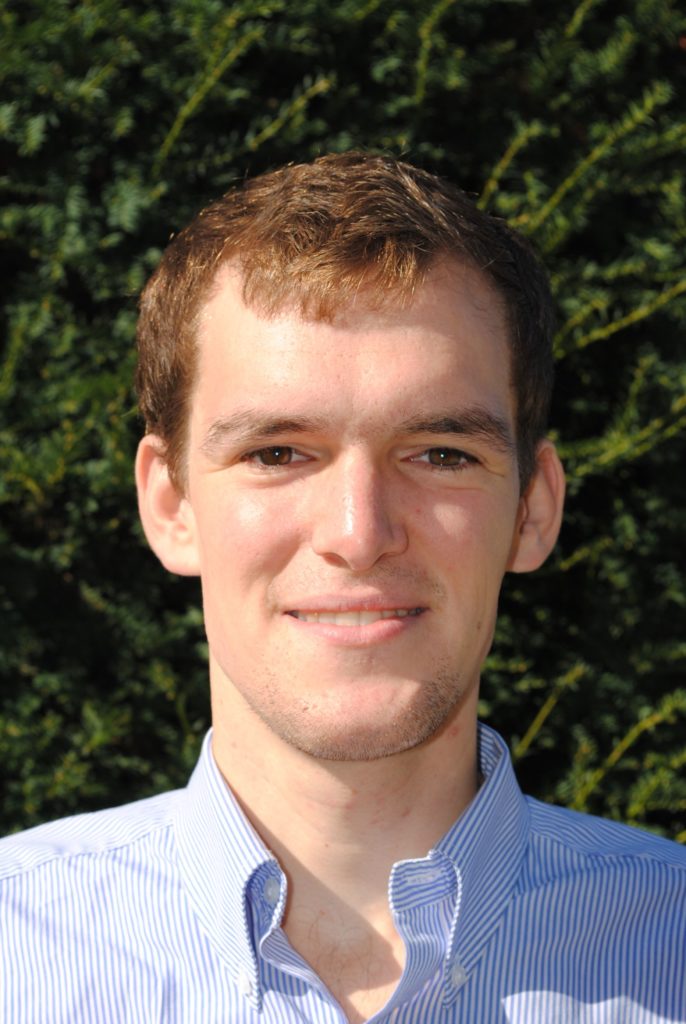Graduate Profile: Cédric Josz
Cédric Josz is a postdoctoral scholar in the IEOR department. He has just accepted a faculty position at Columbia University. Below is more about Cédric's research and plans for the future.

IEOR: Tell us a bit about your research. What topics are you interested in? How are you applying IEOR methods to solve them?
Cédric Josz: My research deals with designing tractable and guaranteed algorithms for solving real-world optimization problems. One application consists in computing power flows in a high-voltage transmission grid that seek to minimize generation costs. New tools are needed to deal with the increasing complexity of power systems due to the penetration of renewable energy and the advent of electric vehicles. Another application I'm interested in is recommendation systems, and in particular the Netflix problem. The challenge is to recommend movies to users who only see a small subset of them, so this can be seen a problem with incomplete information. The IEOR methods I use fall in two categories: convex relaxations and local search algorithms. The former relies on deep results in measure theory and algebraic geometry, while the latter analyzes the landscape of the function to minimize using its derivatives.
IEOR: Tell us a bit about your work here at UC Berkeley with Profs. Lavaei and Sojoudi? How has their advice helped you succeed?
CJ: With my advisors at Berkeley, we focused on handling nonsmoothness in optimization. It is important because it arises in many machine learning applications such as the training of deep neural networks. Profs Lavaei and Sojoudi's mentorship was crucial for the success of our research projects. Thanks to their research vision, I explored new directions that turned out to be very fruitful. They pushed me to experiment with daring ideas. For instance, there is growing body of work on the absence of spurious local solutions in many data science applications once formulated as an optimization problem. The existing proofs in the literature are generally tailored to each application. We could prove a general mathematical result regarding the set of functions that are devoid of spurious local solutions. It turned out to be quite helpful for analyzing problems in matrix completion and neural networks.
IEOR: Congratulations on accepting a faculty position at Columbia! What excites you most about being a professor?
CJ: Thank you! I am very happy to be joining the IEOR department at Columbia. During my visit, I was impressed by the depth and breadth of the work done in that department. What excites me the most is to be able to pursue research in collaboration with some of the best graduate students in the world. Given the PhD coursework offered at Columbia, they will have the ideal training to pursue research in optimization. I look forward to sharing my future research plans with them and finding interested candidates.
IEOR: As a new professor, how do you think the OR field will change over the coming decades? What kinds of problems do you think IEOR research can help solve over this time period?
CJ: I believe that the OR field will have an increasing impact on several key societal systems in the future. These include smart grids, intelligent transportation systems and smart cities. Difficult challenges lie ahead with the advent of autonomous vehicles, the increasing success of deep learning for medical imaging, and the development of smart grids. As these technological innovations transform the world we live in, our well-being will become increasingly dependent on the well-foundedness of the underlying optimization algorithms. Classical optimization deals with well-structured problems that are convex, but most modern problems are devoid of this property. As such, many developments should be expected in the area of non-convex optimization.
IEOR: What will you miss most about Berkeley?
CJ: What I will miss the most are the members of my research groups in IEOR and EECS. They provided me with tremendous support during my stay in Berkeley. I was also very fortunate to collaborate with them during my two years of postdoctoral research, and hopefully we will continue to do so. Work aside, I will miss playing soccer with them in our intramural team, the Martingales.